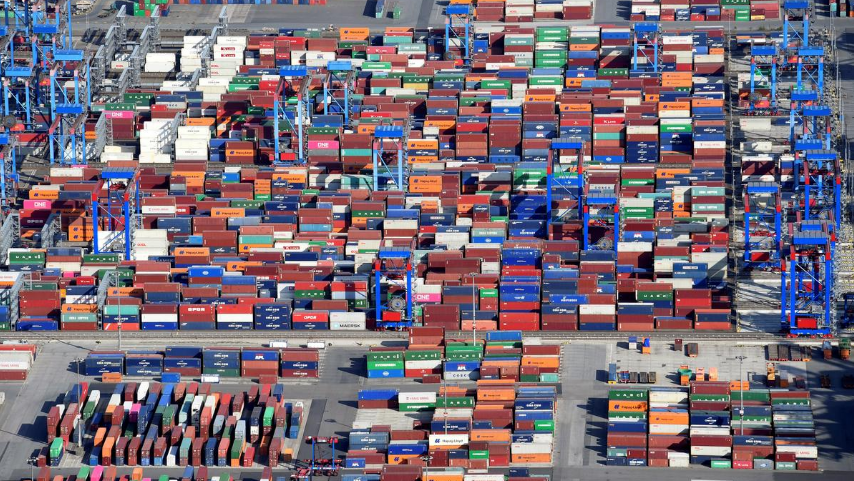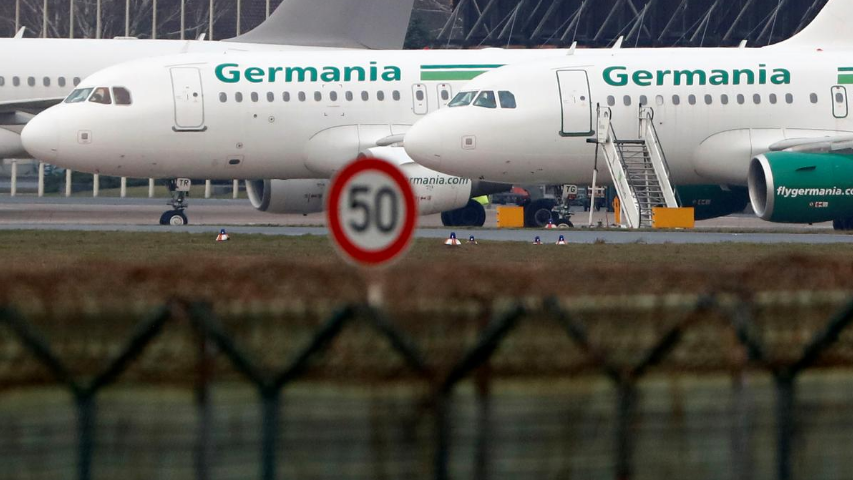A new study has warned that the German economy could react negatively due to the amount of large firms filing for bankruptcy.
German credit insurer Euler Hermes released the finding on Friday, which predicts weak growth for 2020 in the European economic powerhouse.
A significant number of German firms filed for insolvency this year as compared with 2018, the study said, adding that in the first three quarters of the current years alone, 42 percent more companies went bankrupt as compared to the previous year.
In 2018, the number of such cases was 19, while in 2019, 22 firms with a turnover exceeding 20 million euros (55 million U.S. dollars) went bankrupt.
The study said that the affected firms include sectors such as energy, retail, and manufacturing but most of them were in the retail and construction sectors.
Airline Germania, industrial parts company Eisenmann, wind turbine manufacturer Senvion, retailers Gerry Weber and Beate Uhse, and sports equipment manufacturer Kettler, as well as the German branch of British travel company Thomas Cook were among those that collapsed this year.

Aerial view of containers at a loading terminal in the port of Hamburg, Germany, August 1, 2018. /Reuters Photo
Aerial view of containers at a loading terminal in the port of Hamburg, Germany, August 1, 2018. /Reuters Photo
Chief of Euler Hermes in Germany, Austria, and Switzerland Ronald van het Hof said in a statement that many sectors are encountering challenges that they need to address.
Nearly all German firms are facing a massive structural shift with digital transformation and sustainability policies, he added.
"What is really dramatic about these large insolvencies is the domino effect on a lot of companies along the supply chain," said van het Hof.
The study revealed that the average revenue of the bankrupt firms in the first three quarters of 2019 was 339 million euros, which shows an 81 percent increase in damage to the economy from 2018.
Euler Hermes predicted a trickle of growth for the country's gross domestic product (GDP) at 0.6 percent for 2020.
Germany enjoys a strong position as the world's fourth-biggest economy, meaning a lot is dependent on it.

German Holiday airline Germania collapsed earlier this year. /Reuters Photo
German Holiday airline Germania collapsed earlier this year. /Reuters Photo
The EU can reverse its sharply slowing economic growth in the first three quarters of this year to become an important driver of global demand and output, CNBC reported last Sunday.
Such an outcome depends on Germany, it added.
Meanwhile, in neighboring France, which is the second-biggest economy in the eurozone, public sector unions are set for a major strike beginning on December 5 against President Emmanuel Macron's planned pension reform.
The most hardline unions want to shut down the economy until the former investment banker scraps the reform, Reuters reported.